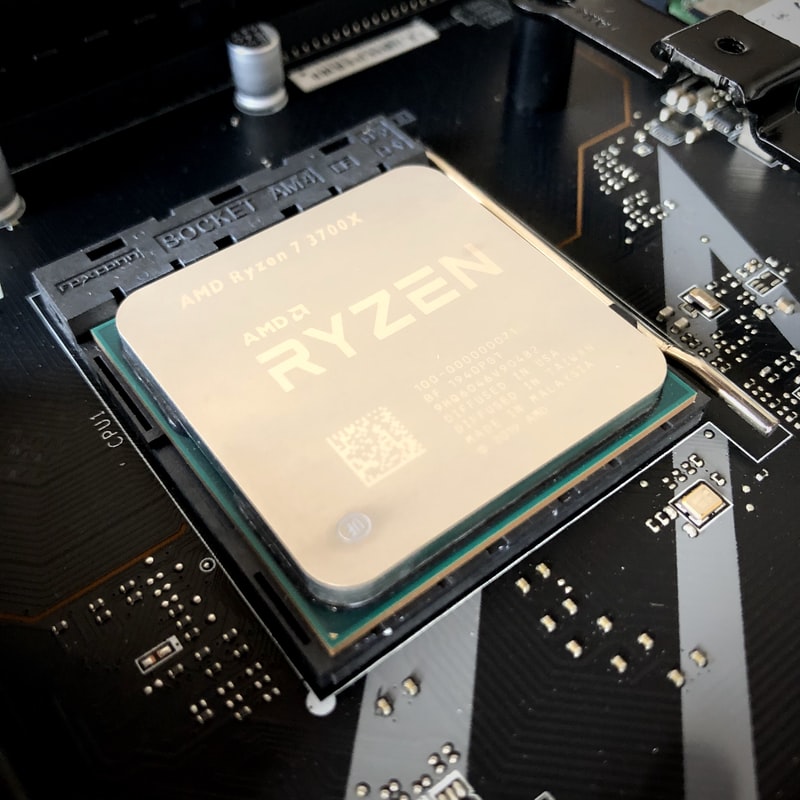Advanced Micro Devices has recently unveiled the launch of a series of three second generation EPYC processors, which consist of the EPYC 7F72, 7F52, and the 7F32. The new 7Fx2 range of CPUs have better performance than their predecessors and are designed to handle much heavier workloads in the enterprise environments, specifically when it comes to hyperconverged infrastructure workloads, high performance computing, and much more.
The new 7F32 CPU will be offered with a total of 8 cores and 16 threads, while the 52 model features 16 cores and 32 threads. The more powerful of the three, the EPYC 7F72 consists of a massive 24 cores and 38 threads, making it the most powerful range of enterprise processors currently available on the market.
The Performance
The range has a base clock of between 3.2Ghz and 3.9Ghz and is able to pull another 500Mhz of base frequency for a small clock boost. With a much larger cache availability, the CPUs have taken the title as the highest per core frequency performance x86 chips on sale.
Additional Features
Along with high base frequencies and core counts, the processors will also support PCIe 4, as well as up to DDR4 3200 memory, which is based on AMD’s proprietary Infinity Architecture, designed to provide better performance for both RAM and ROM communication, offering lower latency for most applications, whether it’s online pokies NZ or 8K video encoding. The new features are expected to have a large impact on the server CPU market, with the 7Fx2 processors to become the new standard for high performance computing. As in the past, it’s likely that the EPYC range will eventually be ported over to the private use domain, where users will be able to use the chips for their desktop stations, although they will undoubtedly be the most expensive CPUs on the market.
AMD’s Market Boosts
AMD has been seeing continued growth over the last year, even starting to outpace Intel’s lead, producing a large range of high-quality CPUs that are becoming the new industry favourites. On top of that, many tech industry giants, such as Lenovo, HP, Dell, and Microsoft have already begun to snatch up the new line of EPYC hardware, which looks to further boost AMD’s footing in the race for CPU dominance.
Google Cloud, IBM Cloud, and Microsoft Azure are the cloud platforms that have adopted the new range, with IBM Cloud using the EPYC 7642 for their new bare metal servers, giving them a bump for workloads such as design automation and artificial intelligence. Microsoft has added the second generation EPYC processors for their Azure NVv4 virtual machines, which means that their customers will have better cloud synchronisation overall.
These deals, which also include Google’s Cloud services, are a major win for AMD, a company once facing bankruptcy, and should see increased growth over the next few months. In fact, many are speculating that AMD will play a key role in the continued, rapid growth of the cloud computing market.
